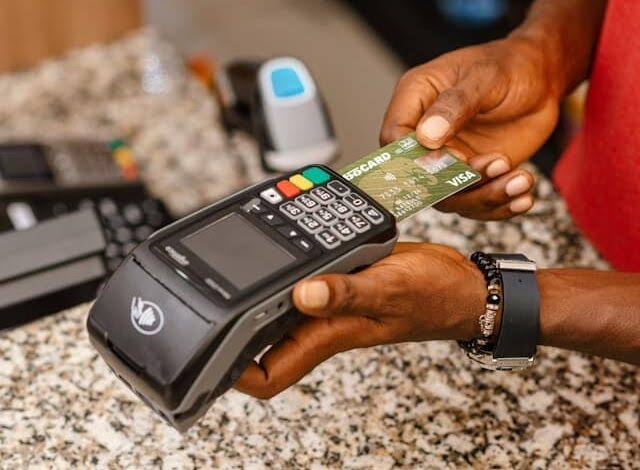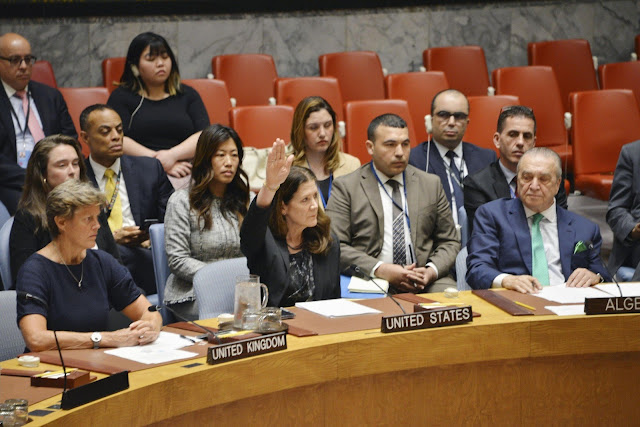In a bold move to strengthen regulatory oversight and curb fraudulent activities in Nigeria’s rapidly expanding financial technology sector, the Central Bank of Nigeria (CBN) issued a directive on August 27, 2025, mandating that all Point of Sale (PoS) terminals across the country be geo-tagged within a 60-day period. This groundbreaking policy, aimed at addressing the rising incidence of fraud and improving transparency in the PoS industry, requires all licensed operators, including major fintech players like Moniepoint, OPay, PalmPay, and commercial banks, to register the exact GPS coordinates of every PoS device in circulation. The directive also stipulates that new PoS devices must be geo-tagged before activation, with a strict compliance deadline of October 20, 2025. Failure to comply will result in the deactivation of non-compliant devices, signaling the CBN’s commitment to enforcing accountability and safeguarding Nigeria’s financial ecosystem.
This initiative comes at a critical juncture as Nigeria’s PoS industry has experienced exponential growth, driven by the country’s push toward a cashless economy and the increasing adoption of digital payment systems. While this growth has transformed financial inclusion and convenience for millions of Nigerians, it has also exposed vulnerabilities, including fraud, the use of cloned or “ghost” terminals, and difficulties in tracking illicit transactions. The CBN’s geo-tagging directive is a proactive step to address these challenges, leveraging technology to enhance real-time monitoring and ensure that PoS transactions are conducted within legitimate business environments. This article explores the details of the CBN’s directive, its implications for operators and merchants, the broader context of Nigeria’s financial landscape, and the potential impact on the country’s journey toward a secure and inclusive digital economy.
The Geo-Tagging Directive: A Strategic Response to Fraud
The CBN’s directive, detailed in a circular released to operators, underscores the apex bank’s determination to tackle the growing menace of fraud in the PoS sector. The circular outlines a comprehensive framework for geo-tagging, requiring that every PoS device in circulation be registered with its precise GPS coordinates. This measure is designed to curb fraudulent activities, such as the use of cloned or “ghost” terminals, which have been used to perpetrate financial scams, including unauthorized withdrawals and money laundering. By linking each PoS device to a specific location, the CBN aims to ensure that transactions are traceable and conducted within a controlled environment.
Under the new rule, all existing PoS devices must be updated with built-in GPS systems and integrated with the National Central Switch, a centralized platform that facilitates real-time monitoring of electronic transactions. The CBN has also mandated the use of a special software development kit (SDK) to enable seamless tracking of PoS activities. To further enhance accountability, merchants will only be permitted to process payments within a 10-meter radius of their registered business addresses. Any device found operating outside this designated radius will be automatically deactivated, sending a clear message that non-compliance will not be tolerated.
The directive applies to all licensed operators in the PoS ecosystem, including Payment Terminal Service Providers (PTSPs), mobile money companies, and commercial banks. Major fintech platforms such as Moniepoint, OPay, and PalmPay, which have become household names in Nigeria’s digital payment space, are expected to lead the charge in implementing the geo-tagging requirement across their extensive networks. The CBN has placed the responsibility of ensuring compliance squarely on these operators, holding them accountable for any lapses in their systems.
The Context: Nigeria’s Booming PoS Industry
Nigeria’s PoS industry has witnessed remarkable growth over the past decade, driven by the CBN’s cashless policy, introduced in 2012 to reduce reliance on physical currency and promote digital transactions. PoS terminals have become ubiquitous across urban and rural areas, enabling merchants, small businesses, and even informal traders to accept electronic payments. According to industry reports, the number of active PoS terminals in Nigeria has grown exponentially, with millions of devices deployed nationwide by 2025. This growth has been fueled by the rise of fintech companies, which have democratized access to financial services, particularly for underserved populations.
The proliferation of PoS terminals has significantly advanced financial inclusion, allowing millions of Nigerians to participate in the formal economy. Small businesses, market traders, and service providers now rely on PoS systems to process card payments, mobile transfers, and other digital transactions, reducing the risks associated with handling large amounts of cash. Fintech platforms like Moniepoint, OPay, and PalmPay have played a pivotal role in this transformation, offering user-friendly and affordable PoS solutions that cater to a wide range of merchants.
However, the rapid expansion of the PoS industry has also created challenges for regulators. The decentralized nature of PoS operations, coupled with the involvement of multiple stakeholders, has made it difficult to monitor transactions and prevent fraudulent activities. Cloned or “ghost” terminals, which are unregistered or tampered devices, have been used to perpetrate scams, siphon funds, and facilitate illicit transactions. These issues have undermined public confidence in digital payments and posed significant risks to the financial system.
The CBN’s geo-tagging directive is a direct response to these challenges, aiming to bring order and transparency to the PoS ecosystem. By requiring operators to register the GPS coordinates of their devices and link them to the National Central Switch, the CBN is leveraging technology to create a more secure and accountable payment environment. This move aligns with the bank’s broader mandate to protect consumers, maintain financial stability, and promote trust in Nigeria’s digital economy.
Implications for Operators and Merchants
The geo-tagging directive has far-reaching implications for PoS operators, merchants, and the broader financial ecosystem. For operators like Moniepoint, OPay, PalmPay, and commercial banks, the directive represents a significant operational challenge, as they must update their entire inventory of PoS devices within the 60-day compliance window. This process will require substantial investments in technology, logistics, and coordination to ensure that all devices are equipped with GPS systems and integrated with the National Central Switch.
PTSPs and mobile money companies will need to work closely with their merchant networks to ensure compliance, providing training and support to help businesses register their devices and adhere to the 10-meter radius rule. The requirement for real-time monitoring via the SDK will also necessitate upgrades to existing software and infrastructure, adding to the operational costs for operators. However, these investments are expected to yield long-term benefits, including enhanced security, reduced fraud, and greater trust in digital payment systems.
For merchants, the directive introduces new operational constraints but also offers opportunities to strengthen their businesses. The 10-meter radius rule ensures that PoS transactions are conducted within the vicinity of registered business addresses, reducing the risk of unauthorized use of devices. However, this restriction may pose challenges for mobile merchants, such as street vendors or delivery services, who operate in multiple locations. These businesses may need to register multiple PoS devices or seek exemptions from the CBN to accommodate their operational needs.
The directive also places a premium on compliance, with the threat of deactivation for non-compliant devices serving as a strong incentive for merchants and operators to act swiftly. The CBN’s emphasis on accountability underscores the importance of collaboration between regulators, operators, and merchants to ensure the success of the geo-tagging initiative. By working together, stakeholders can create a more secure and efficient PoS ecosystem that benefits all parties.
The Broader Impact on Nigeria’s Financial Landscape
The geo-tagging directive is a significant step in Nigeria’s journey toward a secure and inclusive digital economy. By addressing vulnerabilities in the PoS industry, the CBN is reinforcing its commitment to financial stability and consumer protection. The initiative aligns with global best practices in financial regulation, where technology is increasingly used to enhance transparency and combat fraud. Countries like India and Kenya, which have made significant strides in digital payments, have implemented similar measures to track and monitor electronic transactions, providing a model for Nigeria’s efforts.
The directive also has implications for financial inclusion, a key priority for the CBN. By ensuring that PoS transactions are conducted within a controlled environment, the CBN is reducing the risks associated with digital payments, which could encourage more Nigerians to adopt electronic transactions. This is particularly important in rural areas, where PoS terminals have become a lifeline for small businesses and individuals who lack access to traditional banking services.
Moreover, the geo-tagging initiative supports the CBN’s broader agenda of promoting a cashless economy. By enhancing the security and reliability of PoS systems, the CBN is fostering greater confidence in digital payments, which could accelerate the shift away from cash-based transactions. This transition is critical for reducing the costs associated with cash handling, improving financial transparency, and combating illicit activities such as money laundering and terrorism financing.
Challenges and Opportunities
While the geo-tagging directive holds immense promise, it also presents several challenges that must be addressed to ensure its success. The 60-day compliance deadline is ambitious, given the scale of Nigeria’s PoS industry and the logistical complexities of updating millions of devices. Operators will need to mobilize significant resources to meet this deadline, including coordinating with merchants, upgrading hardware and software, and ensuring seamless integration with the National Central Switch.
The 10-meter radius rule, while designed to enhance security, may create operational challenges for certain types of businesses, particularly those that rely on mobility. The CBN will need to engage with stakeholders to address these concerns and develop flexible solutions that balance security with practicality. For example, the bank could consider allowing merchants to register multiple locations or providing exemptions for specific industries.
Another challenge is the potential for resistance from operators and merchants, who may view the directive as an additional regulatory burden. The costs associated with compliance, including the purchase of GPS-enabled devices and software upgrades, could strain the resources of smaller operators and merchants. To mitigate this, the CBN could explore incentives, such as subsidies or tax breaks, to support compliance efforts and ease the financial burden on stakeholders.
Despite these challenges, the directive presents significant opportunities for Nigeria’s financial sector. By leveraging technology to enhance oversight, the CBN is positioning Nigeria as a leader in digital payment innovation in Africa. The geo-tagging initiative could serve as a model for other countries grappling with similar challenges in their payment ecosystems. Additionally, the increased transparency and security brought by the directive could attract more investment to Nigeria’s fintech sector, driving further innovation and growth.
The Role of Technology in Financial Regulation
The CBN’s geo-tagging directive highlights the transformative role of technology in financial regulation. By requiring PoS devices to be equipped with GPS systems and linked to a centralized monitoring platform, the CBN is harnessing the power of data and real-time analytics to combat fraud and enhance accountability. This approach reflects a global trend toward technology-driven regulation, where governments and central banks use digital tools to monitor financial activities and protect consumers.
The integration of PoS devices with the National Central Switch is a particularly innovative aspect of the directive. The Switch, which serves as a centralized hub for electronic transactions, enables the CBN to track PoS activities in real time, identify suspicious patterns, and respond swiftly to potential threats. The use of a specialized SDK further enhances the CBN’s ability to monitor transactions, ensuring that operators and merchants adhere to regulatory standards.
This technology-driven approach also aligns with Nigeria’s broader digital transformation agenda. The country has made significant strides in adopting digital technologies across various sectors, from e-governance to healthcare. The geo-tagging directive builds on these efforts, positioning Nigeria as a leader in leveraging technology to address complex challenges in the financial sector.
Conclusion
The Central Bank of Nigeria’s directive to geo-tag all PoS terminals within 60 days is a landmark initiative that underscores the bank’s commitment to combating fraud, enhancing oversight, and promoting a secure digital economy. By requiring operators like Moniepoint, OPay, PalmPay, and commercial banks to register the GPS coordinates of their devices and link them to the National Central Switch, the CBN is introducing a new level of transparency and accountability to the PoS industry. The October 20, 2025, compliance deadline and the threat of deactivation for non-compliant devices signal the bank’s determination to enforce this policy rigorously.
The directive comes at a critical time, as Nigeria’s PoS industry continues to grow, driven by the country’s cashless policy and the rise of fintech innovation. While the initiative presents operational challenges for operators and merchants, it also offers opportunities to strengthen the financial ecosystem, enhance consumer trust, and advance financial inclusion. By leveraging technology to monitor transactions and curb fraud, the CBN is setting a precedent for modern financial regulation, positioning Nigeria as a leader in Africa’s digital payment landscape.
As the October 20 deadline approaches, stakeholders across the PoS ecosystem must work collaboratively to ensure compliance and maximize the benefits of this initiative. The geo-tagging directive represents a bold step toward a more secure, transparent, and inclusive financial future for Nigeria, with the potential to transform the way digital payments are conducted and regulated.








